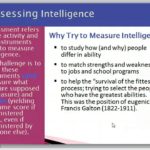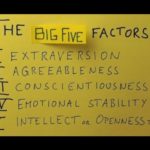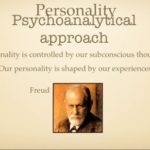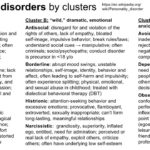Category: Personality
Intelligence Testing
Intelligence testing refers to the use of standardized tests as tools for measuring and assessing intelligence. Mental testing was first used in China in 605 AD as part of the imperial examination system. Intelligence testing was utilized in France in … Continue reading →
Big Five Personality Factor Model
The big five personality factor model is a relatively robust general model for assessing differences in individual personality, based on factorial analysis of personality tests. The model divides personality traits into five broad dimensions, which are conscientiousness, emotional stability, agreeableness, extraversion and … Continue reading →
Freud’s Theory of Personality
Sigmund Freud proposed that the personality consists of three different elements: the Id, the Ego and the Superego. The Id is an aspect of personality that is driven by internal and basic drives and needs. These are typically instinctual, … Continue reading →
Projective Tests
Projective tests refer to a variety of different personality tests used by psychologists, where participants are asked to freely interpret an ambiguous stimulus. Examples of stimuli used in the tests are inkblots, pictures of people, and incomplete sentences. The responses … Continue reading →
Rorschach Test or Rorschach Inkblot Test
The Rorschach test is a psychological test used by psychologists to examine a person’s personality characteristics and emotional functioning. It is especially useful in cases where patients are unwilling to openly describe their thinking processes (1). Tester and subject usually … Continue reading →
Twin Studies
Twin studies are especially important in determining the extent to which genetic influences affect the development of skills, abilities and personality traits. Twin studies look at identical and non-identical twins, and have provided valuable information as well as highlighted the … Continue reading →
Id, Ego and Superego
The Id, Ego and superego are the three parts of the psychic apparatus defined in Sigmund Freud’s structural model of the psyche; they are functions of the mind. The Id is the aspect of personality that is driven by internal … Continue reading →
Personality Disorders
Personality disorders are defined by experiences and behaviours which deviate from societal norms and expectations. People diagnosed with a personality disorder may experience difficulties in cognition, emotiveness, interpersonal functioning or control of impulses. Personality disorders are inflexible and pervasive across … Continue reading →






